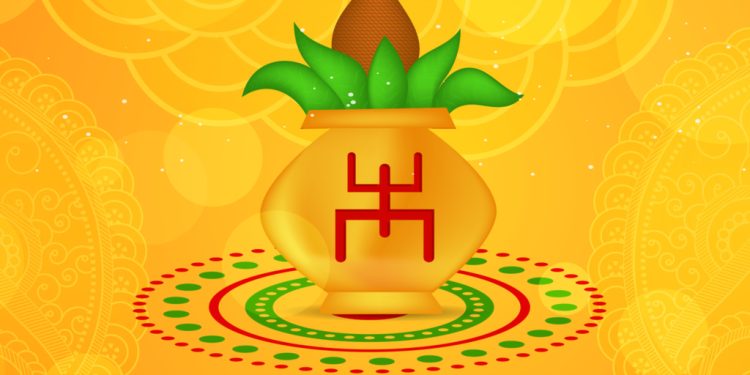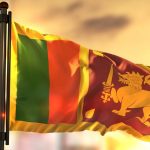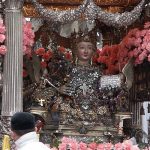
Bengali New Year
The Bengali New Year, also known as Poila Boishakh, is the first day of the Bengali calendar and is celebrated on either April 14th or April 15th. It is a holiday celebrated in Bangladesh, West Nepal, and Tripura. As is the case in Western countries, the traditional greeting for the Bengali New Year is “Happy New Year.”
History of the Bengali New Year
The Bengali calendar, much like the Indian Solar calendar, is based on the collective astronomical treatises known as the Surya Siddhanta. The Surya Siddhanta dates back to the 12th century AD, but it is based on even older texts that go all the way back to the 6th century AD. These treatises determined the motion of the stars, planets, the sun, and the moon, and their relative relation not only to each other but to other astronomical bodies as well. These treatises became the basis for the Indian solar and lunisolar calendars that are now used in different parts of India. Almanac makers in India still use the formulas and equations found in the Surya Siddhanta to calculate their almanacs, otherwise known as Panjikas.
Bengali New Year Customs & Celebrations
Near the end of every year, Bengalis rush to find a copy of the Panjika. This rather thick almanac lists all the holidays, festivals, and religious events for the coming New Year. While many Bengalis are beginning to convert to the English calendar, most of them still use the Bengali calendar for festivals and holidays.
The Bengali New Year officially begins at dawn, and many businesses start their day by clearing out their old ledgers and beginning new ones. The day is also marked with lots of processions, people singing, and fairs. In the larger cities, most of the festivals begin with people gathering under the largest tree or alongside the bank of a river so they can witness the sunrise. On this day, men often wear Punjabis, and women wear flowers in their hair.
Many Bengali households begin the New Year with sweet Bengali delicacies. These sweet dishes include Sandesh, Ras Malai, Payesh, and Rosogollas. However, sweet dishes aren’t the only things served on Poila Boishakh. Many people also serve fish, rice, meat, and vegetable dishes, which include Peas Pilaf, Afghani Murgh Pulao, Mishti Pulao, Tilapia Shorshe, Chicken Do Pyaza, Mutton Kosha, and Jhiri Jhiri Alu Bhaja. Snacks served throughout the day include Dimer Devil, Mangsher Singara, and Onion Pakora. Dips may also be served, such as Dhonepatar Chatni.
All throughout the day, Bengalis wish each other “Shubho Naba Barsho!” which translates to “Happy New Year” in English. Be sure to greet your Bengali friends with this greeting on Poila Boishakh or Bengali New Year.








